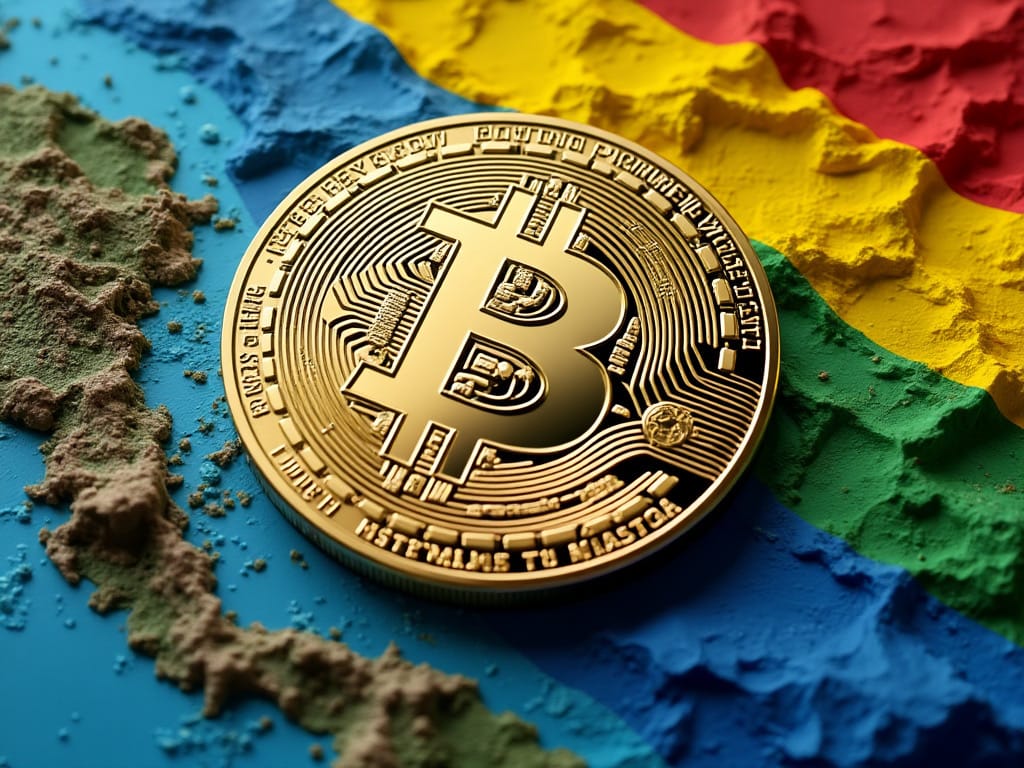Bolivia Turns Into Crypto Haven After Ban Lift

In the heart of South America, Bolivia has quickly emerged as a significant player in the world of cryptocurrency following the lifting of a long-standing ban on digital asset transactions. This transformation has not only altered the landscape of Bolivia's economy but has also positioned the country as a burgeoning hub for crypto activity.
The Central Bank of Bolivia recently announced a dramatic surge in crypto transactions, reflecting a 112% increase in the trading of digital assets since the ban was revoked earlier this year. This policy shift has effectively "dynamized" the national payment system, as per the bank's own words, highlighting an enthusiastic embrace of digital currencies among Bolivians.
With over 252,000 individuals now holding digital assets, Bolivia is witnessing an unprecedented level of engagement with cryptocurrencies. The Central Bank's president, Edwin Rojas Ulo, revealed that the volume of transactions in the last four months alone surpassed $75 million, contrasting sharply with the $46.4 million traded during the first half of 2024. This surge is indicative of a rapidly growing interest and confidence in the crypto market within the country.
The Impact on Financial Institutions
The decision to lift the crypto ban has not only spurred individual participation but has also led to a broader institutional involvement. Nine companies have now started offering crypto services in Bolivia, a clear sign of the sector's expansion and acceptance within the formal financial framework.
Rojas Ulo has articulated the practical benefits of this change, especially the utility of stablecoins like Tether (USDT). He noted that these transactions function much like trading in US dollars, providing a stable alternative in a region often plagued by currency fluctuations and dollar scarcity. This insight into stablecoins' role as dollar proxies has opened new avenues for financial operations in Bolivia, where traditional banking and currency exchange can be fraught with challenges.
Stablecoins as a Game Changer
The story around stablecoins in Bolivia has been particularly compelling. As the country grapples with limited access to US dollars, financial institutions have begun to adapt by offering services related to these digital currencies. Bisa Bank, for instance, pioneered this move by being the first to offer trading and custody services for Tether's USDT in October. This step was lauded by Yvette Espinoza, president of the banking system watchdog ASFI, as a means to mitigate risks for customers venturing into the cryptocurrency market.
The integration of stablecoins into the financial ecosystem not only addresses immediate liquidity issues but also signals a broader acceptance of crypto as a legitimate financial instrument. By reducing the risks associated with traditional crypto interactions, banks are fostering a safer environment for digital asset trading, which in turn encourages more conservative investors to explore these opportunities.
In Bolivia, the shift towards embracing digital currencies is not just a response to immediate financial needs but also a forward-looking step into a globally interconnected financial future. As more Bolivians and financial institutions engage with cryptocurrencies, the country is setting a precedent for how small economies can leverage digital innovation to overcome traditional economic barriers, potentially inspiring similar movements across Latin America.

